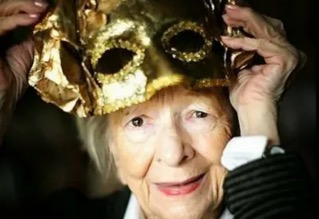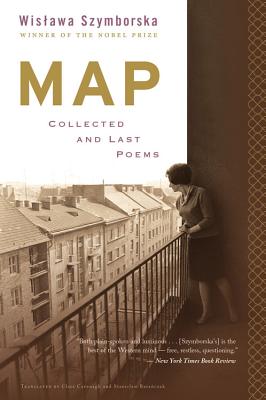APS TOGETHER
Day 9
Colon & Here. Pages 355-393.
August 14, 2020 by Ilya Kaminsky
Szymborska’s “ABC” is one of those pieces where she takes an ages-old form—this time abecedarian—and breathes new life into it: there’s gossip, there’s tenderness, there’s grief, and, as ever, it is all happening at the same time, in just a few lines:
I’ll never find out now
What A. thought of me.
If B. ever forgave me in the end.
Why C. pretended everything was fine.
What part D. played in E.’s silence.
What F. had been expecting, if anything.
Why G. forgot when she knew perfectly well.
What H. had to hide.
What I. wanted to add.
If my being around
meant anything
to J. and K. and the rest of the alphabet.
This is late Szymborska. In pieces, such as “Teenager” the poet, in her eighth decade, is looking back. It is a portrait piece: but whose portrait is it? the young girl’s? the octogenarian speaker’s? Here are a few stanzas from that poem:
She shows me poems,
written in a clear and careful script
I haven’t used for years.
I read the poems, read them.
Well maybe that one […]
The conversation stumbles.
On her pathetic watch
time is still cheap and unsteady.
On mine it’s far more precious and precise.
Nothing in parting, a fixed smile
and no emotion.
Only when she vanishes,
leaving her scarf in her haste.
A scarf of genuine wool,
in colored stripes
crocheted for her
by our mother.
I’ve still got it.
Moral of the story? Whenever Szymborska tells you “no emotion”—expect emotion!

In her late years, Szymborska continued showering us with delightful details. Her poetry continued investigations into various different perspectives. For instance, “The Courtesy of the Blind” (p. 367) is a plainspoken, delightful narrative—but from whose perspective? Seeing the change of that perspective in the final stanza is quite moving.
Another late poem, “Here,” also showers us with delicious details; it shows us the planet as a whole, as if seen from above.
We know we have seen this perspective before, but it feels somehow truer. Why? Perhaps because—after so many (terrible) years, so much (historical, personal) pain—there is still a sense of freshness, a sense of wonder? Here are some lines from that poem:
I can’t speak for elsewhere,
but here on Earth we’ve got a fair supply of everything.
Here we manufacture chairs and sorrows,
scissors, tenderness, transistors, violins,
teacups, dams, and quips. […]
And I know what you’re thinking next.
Wars, wars, wars.
But there are pauses in between them too.
Attention!—people are evil.
At ease—people are good.
At attention wastelands are created.
At ease houses are constructed in the sweat of brows,
and quickly inhabited.
Life on Earth is quite a bargain.
Dreams, for one, don’t charge admission.
Illusions are costly only when lost.
The body has its own installment plan.
And as an extra, added feature,
you spin on the planet’s carousel for free,
and with it you hitch a ride on the intergalactic blizzard,
with times so dizzying
that nothing here on earth can even tremble.
After so many years of poetry: what is the lesson? how to live here on earth? Yes, with a sense of wonder.
